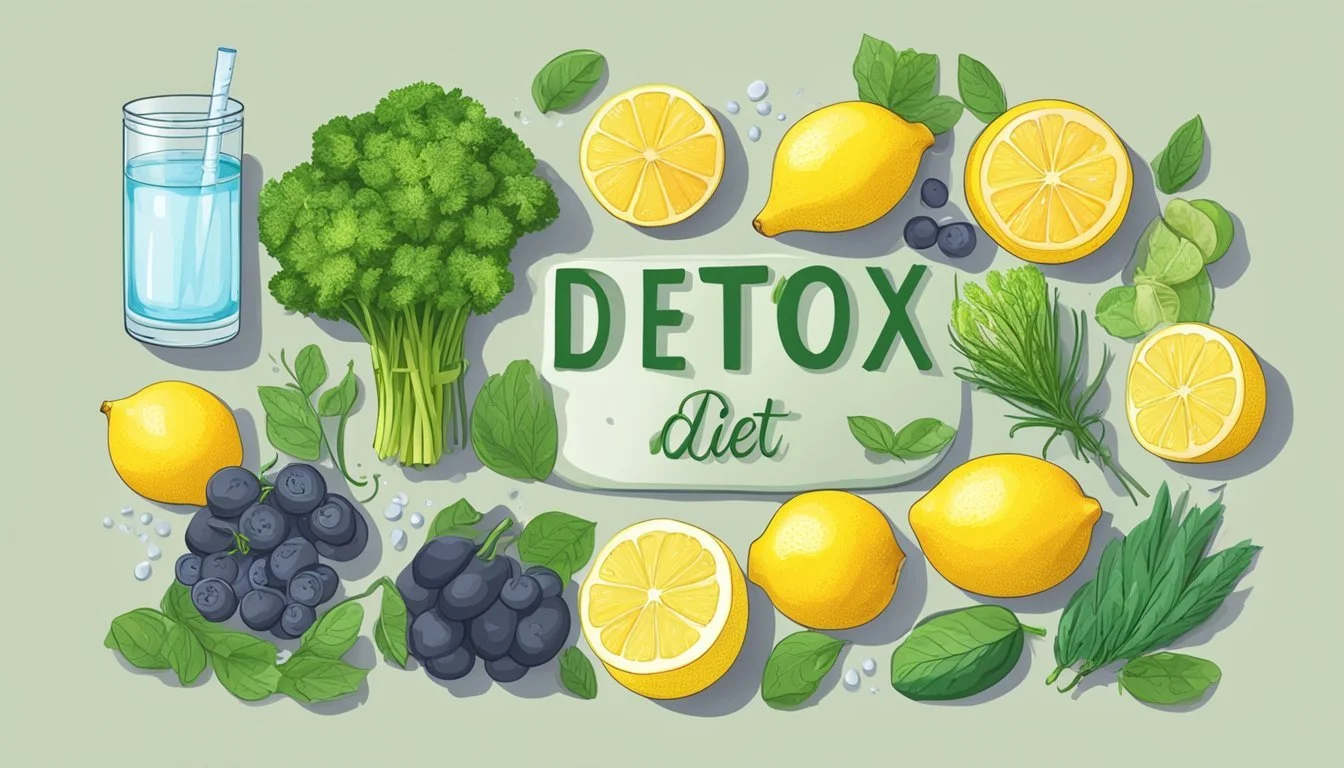The Myth of the Detox Diet
Separating Fact from Fiction in Body Cleansing
The idea of 'detox diets' has gained popularity with promises to cleanse the body and shed weight quickly. Proponents suggest that certain regimens—ranging from juice fasts to specific food exclusions—facilitate the body's natural detoxification processes. However, the concept relies on the assumption that the body requires assistance to eliminate toxins, overlooking the fact that human bodies are equipped with intricate systems specifically designed for this purpose. Organs like the liver, kidneys, digestive system, and even the skin naturally detoxify the body from substances that could be harmful.
Scientific scrutiny reveals that many claims associated with detox diets are not backed by evidence. Nutrition experts assert that while individuals may experience short-term weight loss, this is often due to fluid loss and reduced calorie intake rather than any significant removal of toxins beyond what the body routinely does. Moreover, these diets may lack essential nutrients, which can ironically impair the body's ability to detoxify effectively.
Despite their popularity, it is crucial to approach detox diets with skepticism. True health is not achieved through quick fixes or depriving the body of certain food groups. Instead, it involves a balanced diet rich in a variety of nutrients, combined with regular exercise and healthy lifestyle choices, which collectively support the body's natural ability to detoxify itself.
Understanding Detoxification
This section aims to clarify the concept of detoxification, the body’s natural detoxification systems, and why the notion of detox diets may not hold scientific merit.
What Is Detox?
Detox, also known as detoxification, traditionally refers to the physiological removal of toxins from the body. It's a process that's conceived to cleanse or purge bodily toxins acquired from diet, environment, or metabolic waste.
The Role of the Liver and Kidneys
The primary organs of detoxification include the liver and kidneys. The liver filters blood coming from the digestive tract, metabolizing chemicals and excreting them safely. The kidneys constantly filter the blood to expel toxins via urine. These systems are sophisticated and robust, providing the body with a natural detoxifying capability.
The Myth of Detox Diets
Detox diets often claim to help detoxify the body, but the human body is already equipped with a detoxification system. These diets may involve a period of fasting, consumption of certain juices, or a specific regimented diet. However, there is limited scientific evidence to support that these diets eliminate toxins more effectively than the body's natural mechanisms.
Components of Detox Diets
Detox diets often consist of a specific set of components aimed at purifying the body by removing toxins. They typically include certain foods, beverages, and supplements, as well as practices like fasting and calorie restriction.
Common Foods and Beverages
Fruits and vegetables are staples in detox diets, prized for their high vitamin and mineral content as well as their fiber, which supports digestion. Detox diets often emphasize raw produce, citing their enzymes and nutrients. Water is equally crucial, with a strong emphasis on hydration to aid in flushing toxins from the body.
Examples of commonly consumed fruits and vegetables include:
Leafy greens (e.g., spinach, kale)
Berries (e.g., blueberries, raspberries)
Citrus fruits (e.g., lemons, oranges)
Beets
Beverages can include:
Pure, filtered water
Herbal teas
Freshly squeezed fruit and vegetable juices
Supplements and Herbs
Supplements and herbs are often incorporated for their perceived ability to enhance the body’s natural detoxification processes. These can range from milk thistle, which is believed to support liver health, to various vitamins and minerals that are thought to aid various bodily functions.
Popular supplements and herbs include:
Milk thistle
Green tea extracts
Vitamins B, C, and E
Probiotics
Fasting and Calorie Restriction
Fasting or severe calorie restriction is a hallmark of many detox diets, based on the premise that reduced food intake will give the body a break from digestion and help with the elimination of toxins. These methods can vary greatly, from short-term fasts lasting up to three days to diets that cut out significant calorie sources.
Fasting protocols can involve:
Complete abstention from solid foods
Limited periods of eating with prolonged fasting windows
Caloric intake reduction without complete fasting
Evaluating Detox Diet Claims
Detox diets often promise rapid weight loss and cleansing of toxins from the body. However, it is important to scrutinize these claims for their effectiveness, health benefits, potential risks, and the scientific evidence backing them.
Effectiveness and Health Benefits
Detox diets typically involve a period of fasting, followed by a strict diet of fruits, vegetables, juices, and water. Proponents suggest that these diets aid in eliminating toxins, improving energy levels, and promoting weight loss. However, the body already has well-established systems, like the liver and kidneys, for toxin removal and detoxification. Weight loss observed during a detox diet is usually temporary, often from a reduction in calorie intake and loss of water and fecal weight rather than fat loss.
Potential Side Effects and Risks
Although weight loss might occur in the short term, detox diets can be low in essential nutrients, leading to protein deficiencies and decreased ability to detoxify substances properly. Such diets may also increase stress levels, elevate cortisol, and indirectly cause weight gain by increasing the likelihood of binge eating. The lack of fiber and protein can undermine the body's natural waste elimination processes, potentially causing gastrointestinal distress or weakened immune function.
Scientific Evidence
The scientific community has not reached a consensus that detox diets provide the claimed health benefits. In fact, scientific evidence to support the need for detox diets is scant. Studies that focus on detox diets are limited and often show no long-term weight loss or improved health outcomes. Alluding to information from reputable sources, such as Cornell University and Medical News Today, there is no substantial scientific proof that detox diets lead to sustainable weight management or better health in the long run.
Healthy Alternatives to Detox Diets
Instead of relying on detox diets, individuals should focus on sustainable lifestyle practices. These practices include regular physical activity, balanced nutritional choices, and adequate hydration, all contributing to the body’s natural detoxification processes.
Regular Exercise and Sleep
Incorporating regular exercise into one's routine augments the body's ability to naturally cleanse itself. Physical activity boosts circulation and promotes sweat, which can assist in the elimination of toxins. Additionally, allowing for ample sleep each night contributes significantly to health. Sleep is critical for the body’s recovery and the proper functioning of the liver, an organ essential in the detoxification process.
Balanced Nutritional Choices
A balanced diet is key in supporting the body's health. It's imperative to include a variety of foods that provide essential nutrients. Opting for whole foods, such as fruits, vegetables, lean proteins, whole grains, and healthy fats, supplies the body with the vitamins, minerals, and antioxidants needed for detoxification. Emphasizing foods rich in vitamins C and E, as well as glutathione—such as broccoli, almonds, and avocado—can support the body's natural detox pathways.
Hydration and High-Fiber Foods
Adequate hydration is crucial for detoxification. Water aids kidney function, allowing the body to flush out soluble toxins. Adults should aim for approximately 2 liters of water per day, though individual needs may vary.
Consuming high-fiber foods is also essential as fiber helps regulate the digestive system, facilitating the removal of waste. A diet high in fiber, including vegetables, fruits, legumes, and whole grains, supports the natural detoxification of the body by improving gut health and regularity.
Detox Diet Marketing and Misconceptions
In the world of health and wellness, detox diets often come with bold claims of flushing toxins from the body. Marketing strategies can amplify misconceptions, leading to a wide misinterpretation of what detoxification truly involves.
Advertising Tactics
Detox diets are frequently marketed with the promise of purifying the body and enhancing health. These marketing messages are typically crafted to appeal to consumers looking for quick-fix solutions to their health concerns or weight loss goals. They often use enticing buzzwords like "cleanse" and "natural" which can be misleading. Advertisements might feature before-and-after transformations that are not necessarily the result of detoxification but rather weight loss due to caloric restriction.
Buzzwords: "cleanse," "natural," "purify"
Promises: Quick weight loss, toxin removal
Imagery: Drastic before-and-after photos
Misinterpretation of Detoxification
Detoxification is a biological process handled by the liver and kidneys, and there is no scientific evidence that detox diets enhance this natural system. Yet, many believe that certain foods or diets can directly detoxify the body. Fad diets and various products associated with detox claims often overlook the body's innate ability to self-regulate and naturally excrete unwanted substances.
True detoxification: Managed by liver and kidneys
Myth: Diets and products can directly "detox" the body
Regulatory Perspective
From a regulatory standpoint, the FDA (Food and Drug Administration) does not typically pre-approve dietary supplements or food products before they go to market, including those touted for detoxification. Therefore, the oversight of detox diet products is limited, potentially allowing unsubstantiated health claims to persist. Consumers should be wary of these claims, as they may not be supported by scientific evidence.
FDA: Does not pre-approve dietary supplements
Health claims: May be unsubstantiated and without scientific backing
Environmental and Lifestyle Toxins
Toxins from the environment and lifestyle choices contribute to the body's toxic burden. Understanding and mitigating exposure to these can reduce potential health risks.
Identifying Common Pollutants
Common environmental pollutants include:
Industrial Chemicals: Bisphenol A (BPA), commonly found in plastics.
Heavy Metals: Lead, mercury, and arsenic from contaminated water or products.
Airborne Pollutants: Nitrogen dioxide and sulfur dioxide from vehicle emissions and industrial processes.
Pesticides: Residues from agriculture can remain on fruits and vegetables.
Awareness of these pollutants is the first step in reducing one's toxic burden.
Reducing Exposure to Harmful Substances
Practical steps to minimize exposure include:
Diet: Opt for organic produce to decrease pesticide intake. Wash fruits and vegetables thoroughly.
Water: Use water filters that specifically remove heavy metals and chemicals.
Air Quality: Deploy air purifiers to capture particulates and chemical vapors.
Products: Limit use of plastics, especially those labeled as containing BPA.
Limiting alcohol consumption can also reduce the harmful effects of lifestyle toxins. Alcohol is a known toxin with direct impacts on liver function, and reducing intake can alleviate the body's detoxification systems.
The Psychological and Social Impact of Detoxing
The pursuit of quick weight loss and increased energy levels often drives individuals towards detox diets, despite their questionable efficacy. The psychological and social aspects of such diets play a significant role in their popularity.
The Allure of Fast Results
Detox diets usually promise rapid weight loss and a sense of purification, appealing to the desire for immediate gratification. The psychological impact is powerful; individuals often report feeling more energetic and lighter, albeit temporarily. The loss of weight, primarily from water and fecal matter due to a reduced calorie intake, creates a false sense of accomplishment.
Social Influences and Support
The role of social support cannot be understated when it comes to detox diets. Witnessing peers or public figures undergo seemingly successful detox diets can be a strong motivator. Moreover, groups or communities that form around such diets may provide encouragement, even though the variety of foods is limited and the long-term sustainability is questionable. Social reinforcement often leads individuals to overlook the lack of scientific evidence supporting the detoxification claims.







